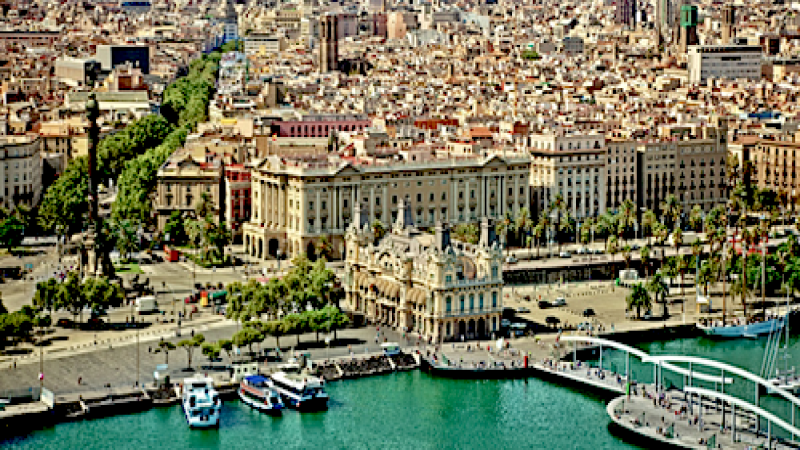Europe Leads The Assault. According to the EV City Casebook, the best electric car city is Amsterdam, Netherlands. Amsterdam, with its 136 square miles city and 780,000 inhabitants, hosts a good electric car infrastructure. With an average commute of 5 miles a day, the city has around 750 electric cars and is shooting for 10,000 on the roads by 2015. Using a relatively low $11 million subsidy, $6,100 go to companies for each electric car, $12,200 per electric bus and $50,000 for every electric trucks integrated into fleets. This led to a purchase of over 200 electric vehicles, EV since 2009.
Catalan EVs. Next city is the beautiful Barcelona with 1.6 million people and 1 million registered vehicles. The city is congested with scooters and motorcycles, so it’s no surprise to see 4,500 chargers built in two years. Strangely enough it only has 400 electric cars but plans for 3,000 by 2014.
Congested Los Angeles. The Los Angeles suburb is home to 4.1 million people crawling through a maze of choked highways. The daily average trip is 23 miles and more than half its population has registered its vehicles. The kink here is 79% of transportation is with individual cars with only a paltry 10% by public means. Even though the city has 2,000 electric vehicles, not counting converted cars, it aims for 80,000 in two years. The state adds $2,500 tax incentives on top of the federal $7,500, and some cities will add more.
The problem with Los Angeles is not so much adding electric cars to its highway, something most people are willing to do, it’s to manage it aging electric grid. The Los Angeles Department of Water and Electricity is investing in its smart grid in order to accommodate electric car charging, going as far as giving its customers a $2,000 discount when they install a charger home.
The difference between the early 1900 switch from battery operated vehicles to gasoline engines and today was that private petroleum companies paid for the gasoline stations around the country. This time around, electric charging stations and building a smart grid are a mix of private and federal funds. Is that bad thing? Not necessarily, as we’ve seen, pure private sectors can lead to excesses that jeopardize its business model. A pure government subsidy system cannot work either as we are witnessing throughout Europe. As always, the road lies in between and you can reap the fruits if you happen to be in the top 16 best electric cities around the world.
Set Torque News as Preferred Source on Google











Comments
Interestingly, I would not
Permalink
Interestingly, I would not want to live in any of these over populated places. :)
I'd live in Barcelona any
Permalink
In reply to Interestingly, I would not by Aaron Turpen
I'd live in Barcelona any time of the year. Fun, young and definetely a lively one.
I wouldn't even consider
Permalink
In reply to I'd live in Barcelona any by Nicolas Zart
I wouldn't even consider Cheyenne, Wyoming and that only has 60,000 people in it. lol Nope, cities are for visiting. I like living in the sticks.
Aw, you've got to go to
Permalink
In reply to I wouldn't even consider by Aaron Turpen
Aw, you've got to go to Barcelona. It's not like your every day city, it's unique. It's rebellious, it's fun, you have to respect it, its tough, its beautiful and its just an overall amazing city. If I had to move to Europe, it would be one of my number choice.